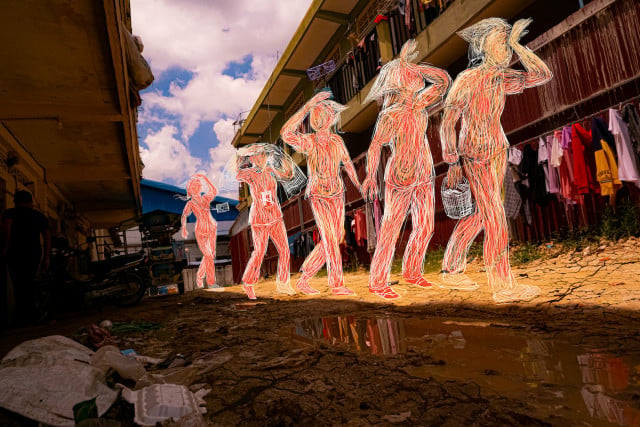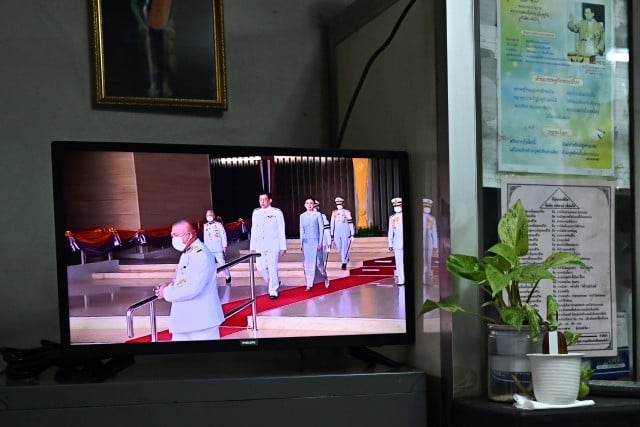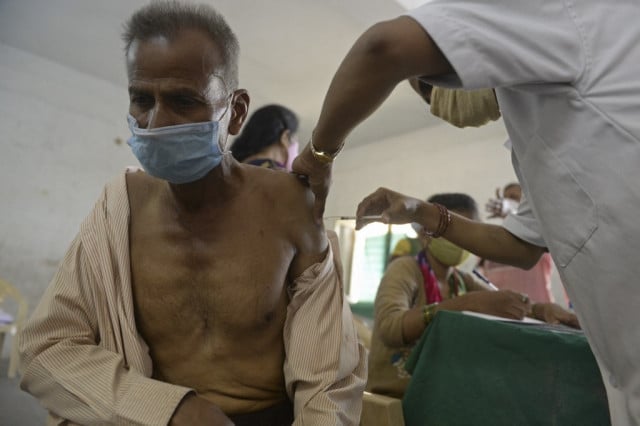Garment Workers Vulnerable to Climate: Study

- By Sao Phal Niseiy
- April 22, 2022 8:14 AM
Report finds a workforce under stress
PHNOM PENH–Garment workers in Cambodia have become increasingly vulnerable to the impacts of the climate crisis, a new study finds.
The study, “The Hot Trends: How the global garment industry shapes climate change vulnerability in Cambodia”, highlights ominous climate-induced impacts on the lives of the garment workers, an issue that has gained less attention.
Commissioned by Royal Holloway University, the University of Nottingham and the Royal University of Phnom Penh and in partnership with the Solidarity Center, the study says about 64 percent of garment workers have experienced climate change-linked impacts such as floods or extreme temperatures over the last 12 months, either inside or outside the factory.
Exploring lives of workers outside the workplace, the study says 29 percent of workers reported experiencing extreme weather or other disasters at their accommodation in the previous 12 months. About 63 percent of these reported flooding while 42 percent reported extreme heat.
“Where flooding affected factory production, around 78 percent of workers reported reduced wages on the days affected,” the report said.
“For those experiencing full factory closures, workers reported an average of 80 percent deduction in their earnings on those days.”
Those experiencing extreme heat regularly could see a sustained decline in their ability to work, equaling an average annual reduction in the value of goods exported of $290 million.
Lead researcher Laurie Parsons, from the Department of Geography at Royal Holloway, said the goal of the report is to underline the structural characteristics of the global garment industry and the impact of climate change on workers in Cambodia.
He said the report combines quantitative climate perception and survey data with qualitative accounts from workers, union representatives, industry figures, government and monitoring bodies.
It explores the experience of climate change-linked environmental impacts on the garment industry.
Around 200 informants took part in the study and eight factory sites were selected with two factories located in each of Phnom Penh, Kampong Speu, Kandal and Preah Sihanouk provinces.
Cambodia had been ranked 13th in the World Climate Risk Index from 1995 to 2015 and 8th in the World Risk Index in 2016 among the world's most vulnerable countries, but since then the country has experienced increasingly extreme weather events such as droughts and floods.
_1650588044.jpg)
Hope of attention to climate impacts on workers
As the world tries to move toward industrial decarbonization, Parsons said the struggles of workers in global supply chains in battling worsening economic and physical conditions have received little attention.
He said the link between industry and climate change has often been studied in one direction: how emissions from factories and industrial processes contribute to carbon emissions.
“Yet our report aims to show that the other side of the coin is equally important: how workers in the global industry are coping with the effects of climate change,” he said.
Climate change was a labour issue as well as an environmental issue. “By highlighting this, we aim to encourage industrial policy to take greater account of workers’ ongoing struggles under climate change,” he said.
Asked what could be done to mitigate the impacts on workers, he said the study offers a number of recommendations both structural and technical, including increasing ventilation and cooling effectiveness in factories.
The report also argues that the voices of workers and unions would have to be brought into the discussion to resolve the impacts of climate change on industrial workers.
“Workers are well aware of how climate change is affecting their livelihoods. They are the experts in what to do and how to do it, yet up to now union voices have been marginalized in garment industry sustainability discussions,” Parsons said.















